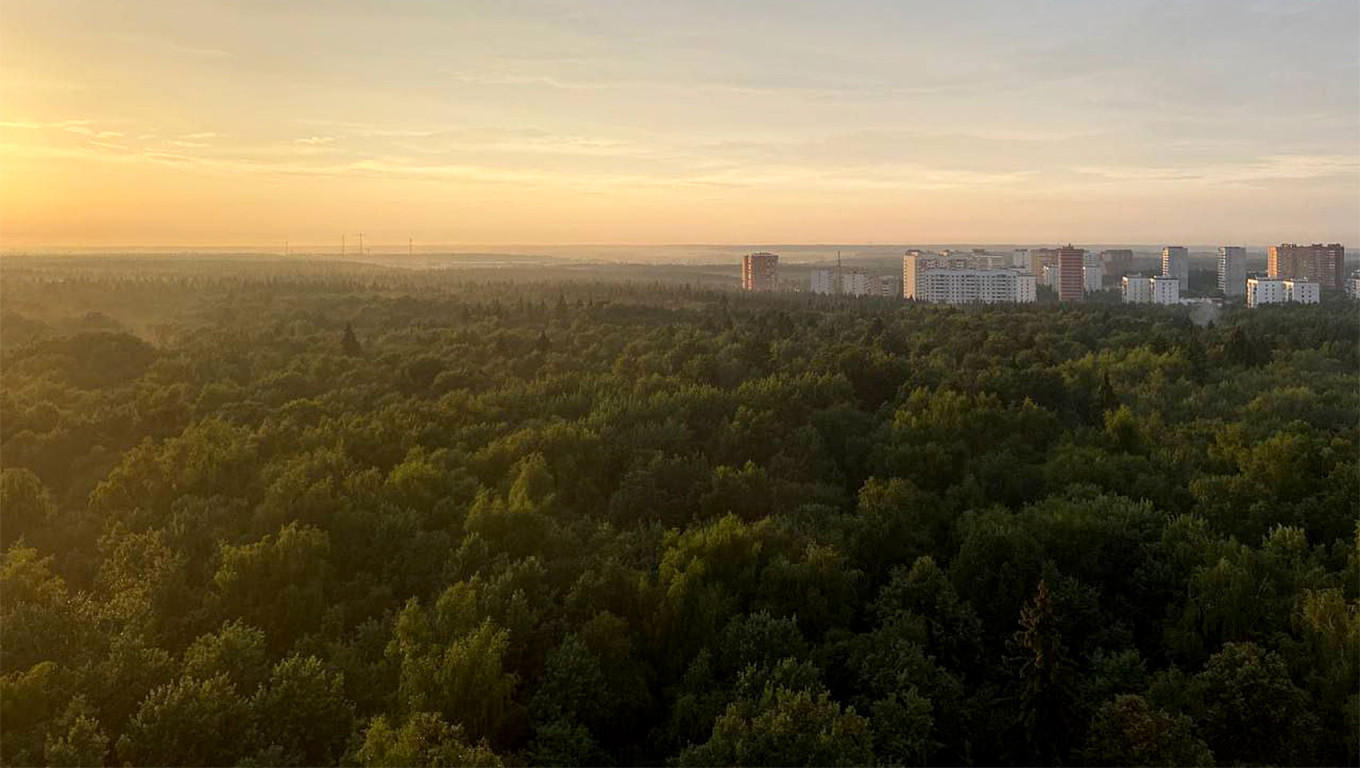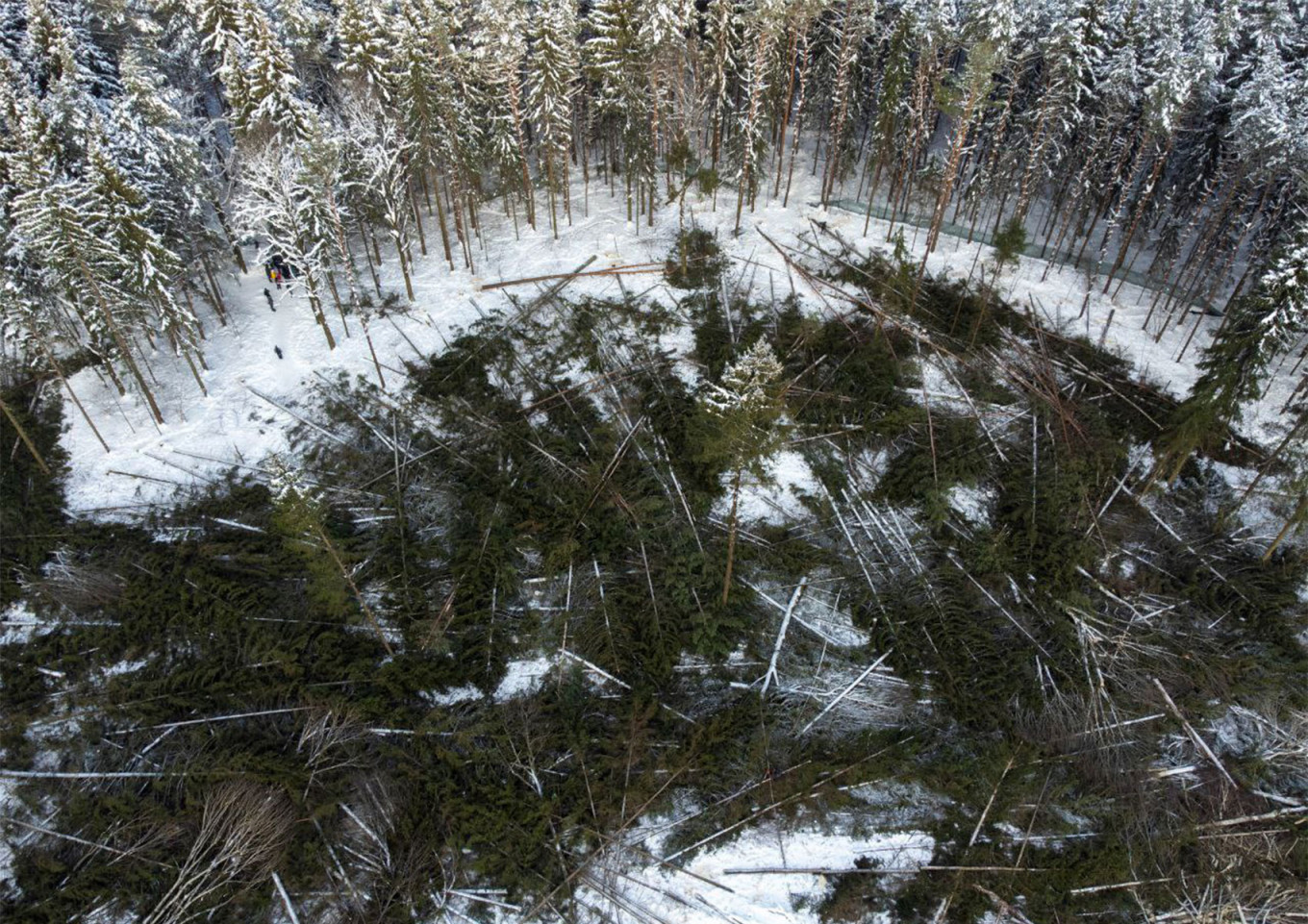Lawyer Olga Slastunina moved to Troitsk in 2006 because of the nearby Troitsky Forest, which she describes as a marvel. However, in recent years, walking in the forest has become increasingly difficult due to plans to clear a portion of it for development. Slastunina joined the Save Troitsky Forest initiative in 2010 to protect the forest from violations of environmental laws and harm to endangered species. Construction in the forest was supposed to begin in 2011, but public and legal opposition delayed it for over a decade. In January 2022, heavy machinery entered the forest under the protection of Russia’s National Guard and started clearing trees to make way for a giant school. Tensions between activists and developers escalated at that point.

Photo courtesy of the Save Troitsky Forest initiative
Activists in Troitsky Forest have been obstructing the felling of trees for years, even facing beatings from individuals allegedly brought in by the developers. Workers have even resorted to clearing the forest at night, but locals have not gone unnoticed. The ongoing and planned development projects in Moscow’s forests and parks, including protected areas, have sparked grassroots resistance in the city. Despite criticisms, Mayor Sergei Sobyanin is focused on transforming Moscow into a world-class urban paradise, and urban forests and parks are seen as part of this transformation. However, these improvements come at an environmental cost, damaging the natural landscape and threatening living nature.

Photo courtesy of the Save Troitsky Forest initiative
Moscow has spent billions of rubles on park improvement projects, creating or upgrading nearly 1,000 parks in recent years. The city officials claim that this development is socially focused, prioritizing social support programs, healthcare, education, culture, and sports. However, these developments come at the expense of the environment, causing concerns among activists. Despite the resistance, the mayor and city officials present Moscow as the “greenest megacity in the world,” citing international rankings. However, critics argue that the ecological balance is not achieved, and many parts of the city lack sufficient green spaces.
The conflict in Troitsky Forest intensified in January 2023, with activists facing police custody and fines. Similar concerns exist in Losiny Ostrov, a national park that is home to hundreds of plant and animal species. The current developments in the park have been criticized as “federal-level lawlessness.” The expert argues that urban development in Moscow often prioritizes construction over natural habitats, resulting in diminished green spaces. Despite the challenges, activists remain determined to protect Troitsky Forest from further destruction.













